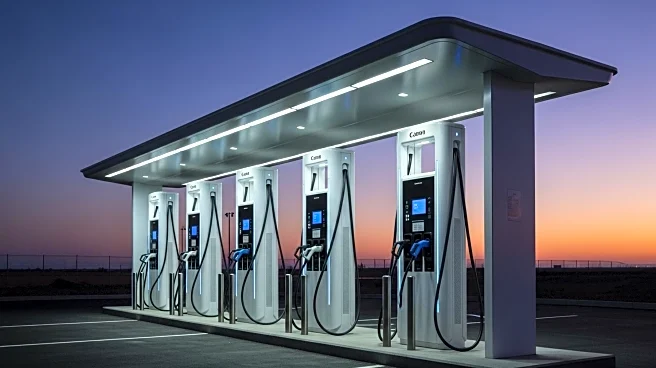What's Happening?
Hyundai's CEO, José Muñoz, expressed surprise upon learning about an ICE raid at the company's battery plant in Georgia through the news. The raid, which occurred on September 4, was the largest single-site operation in ICE's history, resulting in the detention of 475 workers, including over 300 South Koreans. The raid has strained U.S.-South Korea relations and delayed the plant's startup by two to three months. Despite this, Hyundai plans to invest $2.7 billion to expand the plant's production capacity. Muñoz emphasized the need for specialized visas for foreign workers to prevent future disruptions.
Why It's Important?
The ICE raid highlights the complexities of immigration enforcement and its impact on international business operations. For Hyundai, the raid has caused operational delays and necessitated the relocation of workers from other plants. The situation underscores the challenges multinational companies face in navigating U.S. immigration policies, particularly in industries reliant on specialized foreign labor. The expansion plans reflect Hyundai's commitment to the U.S. market and its role in the growing electric vehicle sector. The incident may prompt policy discussions on visa regulations for skilled foreign workers, affecting future business strategies.
What's Next?
Hyundai will continue its expansion efforts at the Georgia plant, aiming to increase production capacity significantly over the next three years. The company may engage in discussions with U.S. and South Korean governments to address the visa issues and prevent similar incidents. The situation could lead to policy changes that facilitate the movement of specialized workers, benefiting industries that rely on international expertise. Hyundai's response and adaptation to the raid will be closely watched by industry stakeholders and could influence future investment decisions in the U.S.










